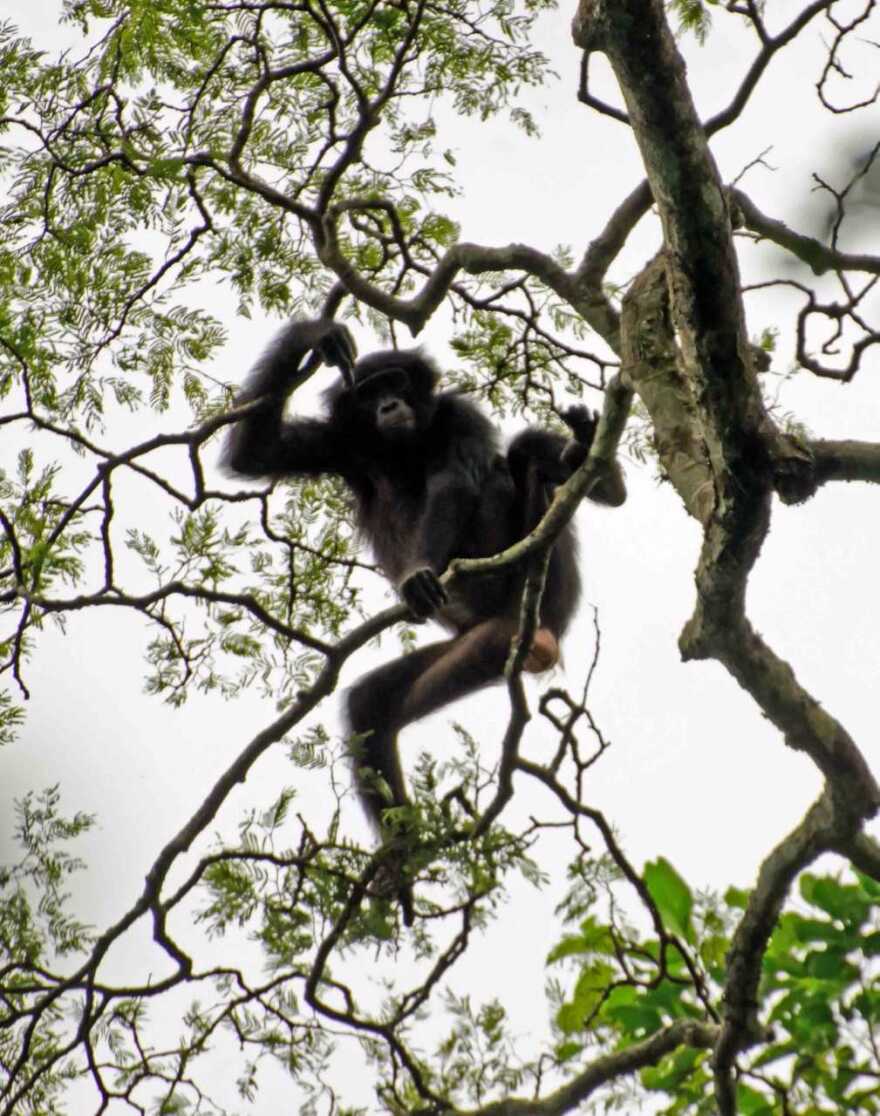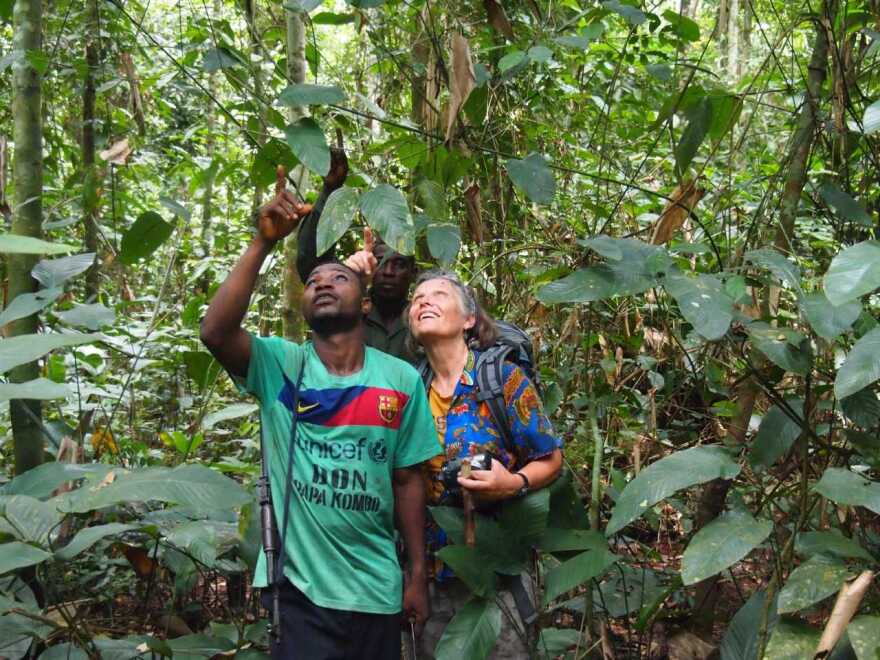Dr. Gay Reinartz has been studying bonobos for two decades. She says the primate and the African forest it lives in are under threat.
The scientist, who works with the Zoological Society of Milwaukee, helped create and leads the Bonobo & Congo Biodiversity Initiative.

Today Reinartz is celebrated as an international crusader, but 37 years ago, when she first came to Milwaukee fresh out of Duke University, Reinartz knew nothing about bonobos.
The Milwaukee County Zoo brought Reinartz on to help with a different animal altogether. “My background was in pedigree analysis and genetics," she explains. "They had some snow leopard issues."
But fate came knocking, when a family-owned zoo in the Netherlands was selling its bonobos. Milwaukee was interested, and Reinartz’s skills came in handy.
“I supplied the background genetic checks and pedigree analysis that ultimately brought our bonobos to the zoo,” she says.
Tides were shifting at that time. Instead of sticking to the tradition of displaying animals in captivity, zoos started taking steps to preserve species in their native habitat.
In the bonobos' case that mean in the heart of an African tropical forest in the Congo Basin. Reinartz says the Salonga national Park is home to 40-50% of the world's bonobo population.

The park is located within the Democratic Republic of Congo and is massive – at least three times larger than Yellowstone National Park in the US.
When Reinartz first visited, the park was largely uncharted. She could only penetrate the water-rich region by canoe and would bushwhack her way into the park’s interior.
Today Reinartz spends months at a time there. She put together a team that works in the park year round. “Fast forward to the present, we have a research station. We have trained a cadre of Congolese researchers who are the ones now in the bush checking for bonobos and counting bonobos,” she explains.
The team uses GPS to navigate the dense forest and track where bonobos live. Reinartz says the easy part is finding bonobos, the hard part is keeping them alive.
Although hunting is prohibited in the park, poachers don’t follows the rules. “We fully support three patrol posts, because one of the major threats to bonobos and to the park – to all wildlife there –is poaching,” the scientist says.

Another challenge Bonobos face is threats to the rainforest they occupy. Reinartz says their plight provides a window for people to realize how important the huge, yet fragile rainforest is to the world.
"This part of the world really acts as our lungs. The Salonga itself is an entire ecosystem," she explains. "If we’re talking about mitigating climate change, we need to protect those animals that are responsible for the forest regeneration like the forest elephant and the bonobo. It’s a package deal.”
Reinartz work can be seen as dangerous. When she first arrived there was a civil war going on. Some people call her work heroic.
Reinartz shrugs off the praise. She says simply the work needs to be done, so she stepped in, but does concede to a moment years ago, when she realized she was meant to do this work. “I do remember one day waking up in the early morning and going out of my tent. I was absolutely exhausted, but there was just something about that morning – the way the sun was coming through the trees and I said to myself, this is where I’m supposed to be."
Have an environmental question you'd like WUWM's Susan Bence to investigate? Submit below.
_







